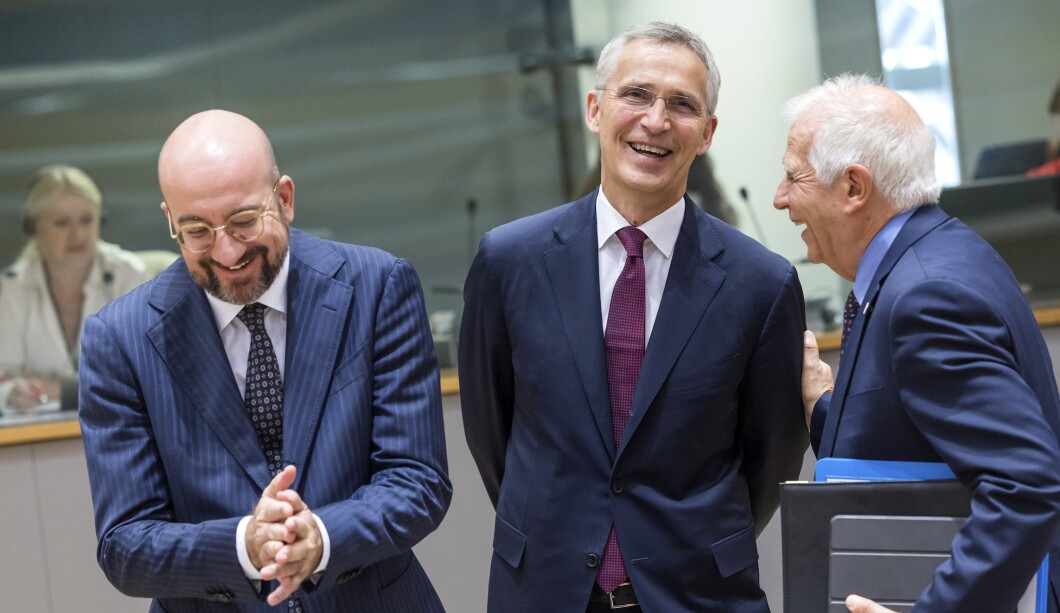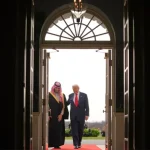
Russian President Vladimir Putin has begun to crack down on military leaders suspected of disloyalty, according to a senior European Union official.
“Everything remains unclear: what has happened, who were behind this attempt of military upheaval, military rebellion,” EU High Representative Josep Borrell told reporters on Thursday. “Some generals have been arrested, so I suppose that Putin will be in a cleaning mode internally and in a more assertive mode.”
SUPREME COURT BANS AFFIRMATIVE ACTION IN RULING AGAINST RACE-CONSCIOUS COLLEGE ADMISSIONS
Borrell offered that general observation following the reported arrest of Gen. Sergey Surovikin, a once-vaunted officer who has functioned at different times as the leader and the deputy commander of Russian military operations in Ukraine. The EU leader also acknowledged that “all the intelligence services in the European Union and member states” are scrambling to evaluate new threats arising from the prospect of Putin’s slackening grip on power.
“It is clear that Putin [comes] out of this crisis weakened, but a weaker Putin is a greater danger, so we have to be very much aware of the consequences,” Borrell said as heads of state from across the EU descended on Brussels for a European Council meeting. “Until now, we were looking at Russia as a threat because it was a force, and force has been used in Ukraine. Now, we have to look at Russia as a risk because of the internal instability.”

Surovikin has not been seen in public since recording a video that urged Wagner Group chief Yevgeny Progzhin’s forces to halt their march on Moscow.
“Apparently, he [Surovikin] chose Prigozhin’s side during the uprising, and they’ve gotten him by the balls,” an unnamed source “close to the Defense Ministry” told the Moscow Times in a Wednesday report. “We are not even commenting on this information through our internal channels.”
Putin’s associates refused to comment on Surovikin’s status by deflecting the question to the Russian Defense Ministry and demurring when asked if the Kremlin chief trusts the general.
“[Putin] is the commander in chief, and he works with the defense minister and the chief of the General Staff of the Armed Forces,” Kremlin spokesman Dmitry Peskov said Thursday when asked about Putin’s confidence on Surovikin, per state-run Tass. “With respect to departments within the ministry, I’m referring you to the ministry.”
Surovikin’s family maintains that all is well. “Honestly, no, nothing has happened to him, he’s at work,” Veronika Surovikin, the general’s daughter, told a Russian media outlet, per a Financial Times translation. “As I understand, everything is sort of flowing as things normally happen. Everyone is at their workplace. Everything is fine.”
The prospect of Russian instability has sparked a surge of anxiety in Western circles, where officials in some wings of the trans-Atlantic alliance long have feared the possibility of nuclear escalation if Putin feels cornered or the specter of “loose nukes” if the regime collapses.
“This is a problem that Putin has brought on himself. … And our goal here is not a change of government in Russia,” German Chancellor Olaf Scholz told reporters Thursday in Brussels. “Our goal, which we are pursuing, is an independent Ukraine.”
Some European leaders ventured to indulge in a measure of schadenfreude. “What we’ve seen during the last weekend is in contrast to the very strong EU unity and NATO-EU unity,” European Council President Charles Michel observed.
Estonian Prime Minister Kaja Kallas struck a similar note. “Russia has played on us getting tired first so we will see cracks in our unity — but it hasn’t happened,” she said. “We see cracks on their side.”
CLICK HERE TO READ MORE FROM THE WASHINGTON EXAMINER
Borrell acknowledged the misgivings but maintained that Western powers should not curtail aid to Ukraine to ease pressure on Putin.
“The only answer that we can give to whatever happens in Russia is to continue supporting Ukraine,” he said. “We can study what is happening, what Prigozhin is going to do with the Wagner [group]. Us, we have to concentrate on our task [and] continue supporting Ukraine.”





